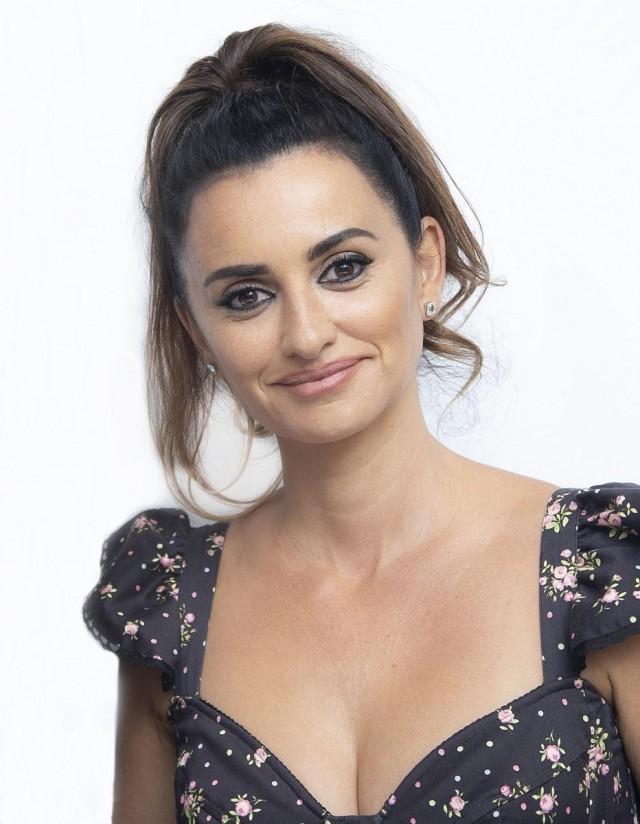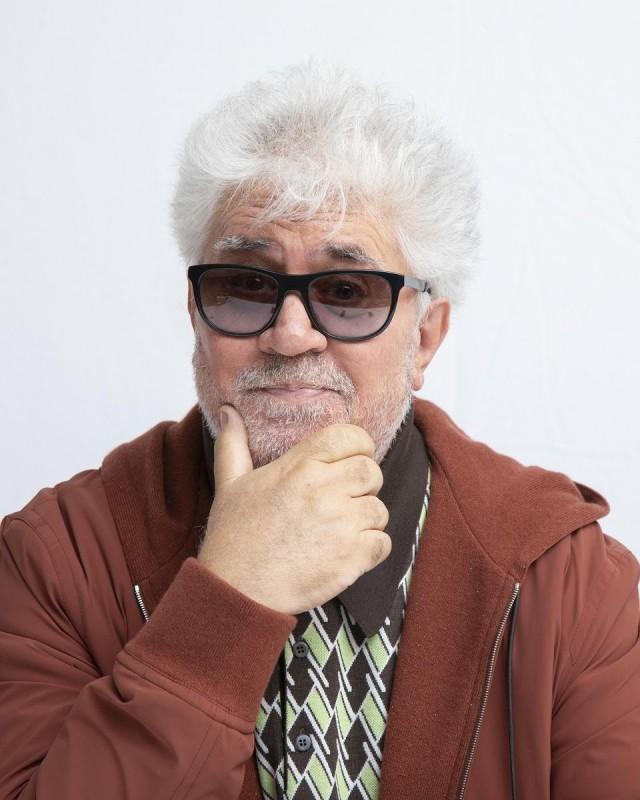Penelope Cruz and director Pedro Almodovar talk of their latest collaboration, 'Parallel Mothers'
LOS ANGELES — Leave it to Penelope Cruz to be able to effortlessly traverse both dramatic and comedic worlds with ease and flair.
The 47-year-old Spanish actress was funny at "Official Competition" with Antonio Banderas and movingly dramatic in her eighth collaboration with her favorite director-writer, Pedro Almodovar, in the psychologically rich "Parallel Mothers."
The story of two women who gave birth at the same time and whose children were accidentally switched at birth, the film showcases Penelope's performance as Janis and was lauded by the critics. Now a mother of two herself, Penelope won the Volpi Cup for Best Actress at the 78th Venice International Film Festival for her portrayal.
We were able to talk to Penelope and Pedro and below are excerpts from that press conference.
Penelope Cruz

Please talk about this very emotional role your portrayed.
It has been a very intense trip, but very nice. It has been a gift. I remember perfectly the day I read it. One night, I closed it and said, well, this man has written other wonders. It is totally round. It is an honor to be part of something so special and so important, because what counts is very important and if I was aware that I was facing a difficult character, perhaps the most difficult so far, but not. It is something that he has done alone, far from it.
We have had months of rehearsal with him. There are very few directors in the world who give their team and their actors all this time and dedication, I think we spent two- or three-months rehearsing, in his house, in desire. He works with the system that I respect and value the most. He is a craftsman, right? And it is like this with us and with all the departments and there is little left in the world and for me that is gold because from there things come out that I think are very necessary, that everything is going at a pace where everything is far above and at a pace that interests me less. But his pace comes from a work of many layers, a long time, giving time to things, giving it a thousand turns.
Of course, It is an ethic work. It is how he does things, all the people around him, all the people who accompany him are situated in the same place, because you do not want to disappoint him and because you see a man who would be almost willing to give his life for the film, even if it sounds exaggerated. I look at him there, I see that, then he scolds me because he says I suffer too much shooting, but I look at him and say but how can you tell me that if we are such for which? And I believe that there are things that are also only carried out if you are in a place to take it very seriously, with great humility every day and I also believe that we have all felt that way every day of this hard but magical and precious process.
Can you talk about your extraordinary collaboration with Pedro Almodovar? Do you bombard him with requests to play a specific part or come up with ideas? How does it happen with the two of you?
I respect him too much to bombard him with request. I feel like the luckiest girl in the world being able to work with him for so many years, seven different projects, so many different characters. He has given me incredible opportunities, so many beautiful challenging characters, all of them so different from each other and so different from myself.
So, I am extremely grateful and I know that when he's preparing a film, if he thinks that I will be right for it in every sense, he would call me and if not, he wouldn't, and I respect his process too much, to even think about like, "Oh, why didn't he call me in that one" or no no no… But when he calls me, it's like the call that makes me the happiest because he's really the reason why I started to work as an actress when I was very young, like 16, when I saw "Tie Me Up! Tie Me Down!" (1989) and obviously I liked to get into the theater because you have to be a teen, 18 at that time to see it.
I came out of the theater, and I decided to look for an agent to do some castings and to try to work as an actress to go to a theater school. Also that one day, I hopefully could work with him and two years later he called me, and I've always said from the moment we met and that was for "Kika" (1993) but I was too young and he said, "I will write you a character in my next movie and he did, from that first day we really connected and we understand each other and, and it's a pleasure working together, because we like working hard. But we have great communication and is a smooth ride even when we suffer.
These notes sometimes are days that are not easy, but I feel like he's my safety net. He can ask me to do something that can really scare me, but I know he will be there to sustain me. He would be there waiting for me for us. He's so present in the set and you will not see him with a cellphone or talking with somebody else. He will be those 12 hours completely present there, for all of us and for every single department. That is something that you don't see a lot around nowadays.
Pedro Almodovar

Talk about your collaboration with Penelope.
Penelope does not bombard me with requests by phone to work with me, but I do know that she is waiting at her house that if I write a script; be the first addressee, especially if there is a character who is around her age and characteristics and it is true that when it happens, when I write a character who is around her age, she is the first actress to whom I propose and I send the script to Penelope firstly I admit. Above all, it is very important to know that we understand each other, that we speak the same language and that I am going to be exhaustive with her as a director. She will understand what I ask of her and above all that she will try to do it as many times as possible.
So, there are two elements that always make me trust Penelope in addition to her obvious beauty and her obvious photography. And it is that she has blind faith in me, she has more faith in me than I have in myself and that gives you enormous value, makes you dare more, and then she is also very hard-working and that she will not waste time. She is going to give as much time as I ask for the rehearsals of the film.
For example in this film, which is a very particular mother and a role, I think it is the most complex role I have written for her, I need to have solved the problem of interpretation before filming, so with her basically and with Milena (who shares most of her character with Penelope) I think we have rehearsed the entire script more than once and that way already when we were going to shoot we knew perfectly what we were going to do, and that does not indicate that bad things do not happen in the filming. In all the filming, bad things happen, because the filming is something that is alive, and I have to adapt to the circumstance and adapt to the new things that are appearing. But in a natural way, our relationship has been feeding on something real, which is the result of work, the result of experience, so that is a huge advantage when thinking about it.
This film is based on the mother in a very different way. In short, it is different from the women and mothers in your previous films. Tell us more why this change in the female characters and why is it unfolding right at this moment.
Yes, now I am more interested in imperfect and questionable mothers or at least those who go through periods that are very difficult to solve, simply because the previous mothers were the opposite, the previous mothers were more inspired by my own mother, by the female figures that I was educated as a child. I was a child surrounded by women who were sometimes my mother or the neighbors, and all the omnipotent mothers that I have put in my films came from that early education.
But the more complex the character of Penelope was the more I was interested as a director, because it also meant something new to me. It is also true that it made it more difficult, but in my experience with the real mothers in my life I have found some, for example, who did not have maternal instincts, or I have found many types, even if they are flooded mothers. So, in this case, for a matter of novelty, I was more interested in this type of imperfect mothers.
—MGP, GMA News



